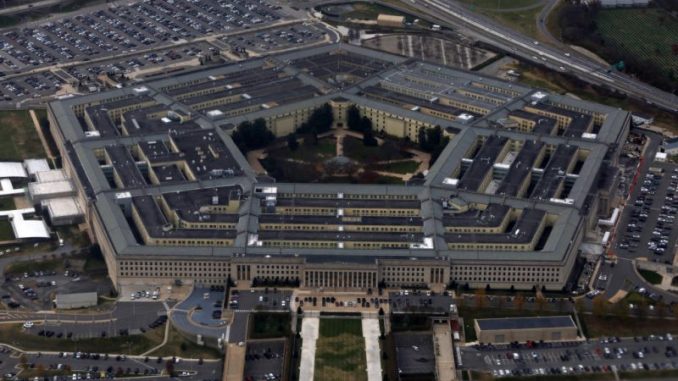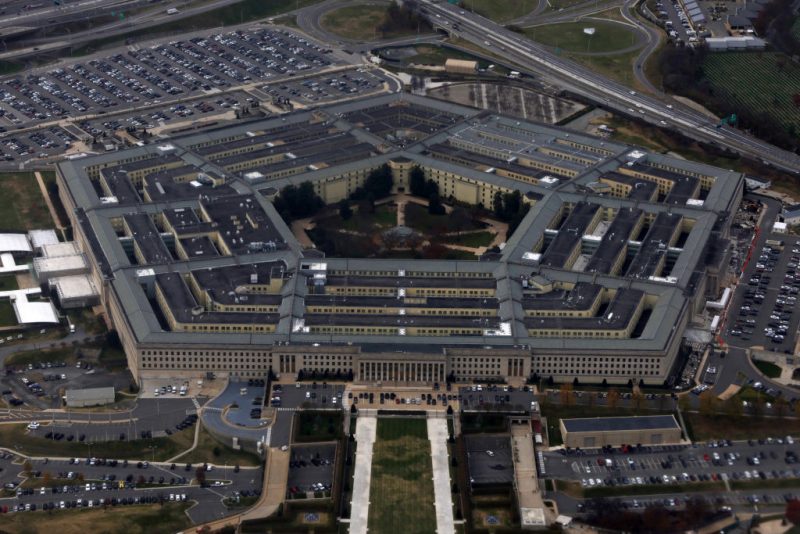

OAN’s Geraldyn Berry
11:13 AM – Monday, July 17, 2023
The Pentagon has confirmed on Monday that a common typo within the United States military has led to the misdirection of numerous sensitive emails and messages to the African country of Mali.
Advertisement
The sensitive information shared in these emails reportedly included official travel itineraries and bookings, X-rays and other medical data, information from identity documents, crew lists for military vessels as well as staff lists for military bases, tax and financial records, photos of bases, inspection reports, maps of installations, criminal complaints against personnel as well as internal investigations into bullying.
The root of the issue lies in the U.S. military’s “.MIL” domain name used for emails, which is frequently mistyped as “.ML,” the domain designated for Mali. As a result, a substantial leak of unclassified yet sensitive information has occurred, encompassing diplomatic documents, tax returns, passwords, and travel details of high-ranking officers, as reported by the Financial Times.
Acknowledging the gravity of the situation, the Pentagon issued a statement, explaining that emails sent beyond the “.MIL” domain are usually blocked. However, the Department has clarified that it is challenging to implement technical controls to prevent the use of personal email accounts for government business. Nonetheless, they are actively providing guidance and training to Department of Defense (DoD) personnel, with the matter overseen by the DoD Chief Information Officer’s office.
In 2013, initial reports about the leaks had surfaced with the assistance of Johannes Zuurbier, a Dutch entrepreneur responsible for managing Mali’s domain. Zuurbier disclosed to the Financial Times that he has collected an alarming number of at least 117,000 emails originating from within the Pentagon since January alone, and even more in preceding years. He expressed concerns over the risk posed by this situation, warning that adversaries of the U.S. could potentially exploit the leaked information.
Adding to the complexity of the matter, Zuurbier raised another issue regarding the fact that his ten-year contract to manage Mali’s domain is expiring imminently, and control will soon revert to the Mali government, which maintains a close alliance with Russia. This development raised questions about the future management and security of the “.ML” domain, considering the potential involvement of an allied nation with Russia.
According to Zuurbier, he spoke with a number of government representatives, including a defence attaché in Mali, a senior adviser for the U.S. National Cyber Security Service, and several White House staffers.
News of this leak came days after it was revealed that China-based hackers had gained unauthorized access to U.S. government emails through a Microsoft cloud system. Microsoft is actively investigating the source of the breach, while President Biden’s administration has vowed to hold those responsible accountable.
According to Microsoft’s recent announcement, a hacking group identified as Storm-0558, originating from China, successfully breached email accounts belonging to approximately 25 organizations, including various U.S. government agencies. The investigation into the breach is ongoing, as the Biden Administration has affirmed its commitment to ensuring that consequences are imposed on those responsible for the security breach.
Stay informed! Receive breaking news blasts directly to your inbox for free. Subscribe here. https://www.oann.com/alerts

